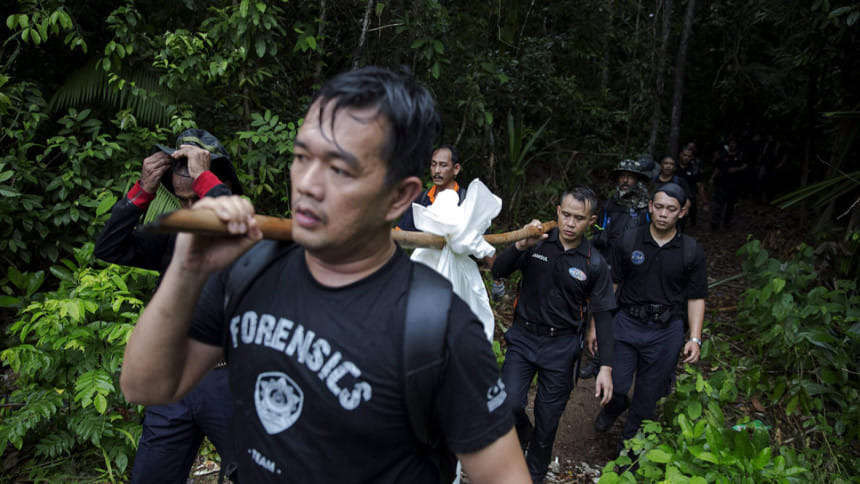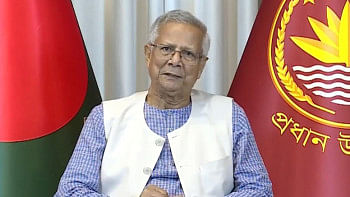Malaysia investigates police over links to mass graves

Malaysia is investigating 12 policemen suspected of involvement in human-trafficking camps found in the remote north of the country.
Four of them had been arrested during various police investigations since early last year, said Deputy Home Minister Wan Junaidi Tuanku Jaafar.
Authorities said 139 graves had been found on the border with Thailand.
The route is used by people-smugglers bringing migrants from Myanmar and Bangladesh into Malaysia.
The migrants are mainly Rohingya Muslims fleeing persecution in Myanmar - also known as Burma - or economic migrants from Bangladesh.
The eight other policemen were arrested by the Malaysian Anti-Corruption Commission for alleged involvement in human trafficking, Wan Junaidi said.
"We will have to see whether or not there are any links to the camps. Because the arrests were made in the north, we suspect there may be some connection," he told reporters outside parliament.
Torture and abuse
On Tuesday, authorities started excavating the graves, found in jungle in northern Perlis state, to confirm how many bodies they held, and who they were.
Thai police uncovered similar abandoned camps on the Thai side of the border earlier in May.
Reports from news agencies taken to see the camps in Malaysia detailed evidence of torture and abuse.
Reports in Malaysian media questioned whether officials on both sides of the border were complicit. On Tuesday, Malaysia said park rangers were under investigation for suspected involvement in human-trafficking.
The discovery of camps in Thailand triggered a crackdown on human-trafficking that appears to have led traffickers to abandon their human cargo on boats in the waters off Thailand.
The boats, crammed with hundreds of starving migrants, started coming ashore in Malaysia and Indonesia.
Facing international pressure, the two countries agreed to provide temporary shelter for the migrants on the condition that they will be repatriated by other countries within a year.
Asia's migrant crisis
- Rohingya Muslims mainly live in Myanmar, where they have faced decades of persecution.
- Rights groups say migrants feel they have "no choice" but to leave, paying people smugglers to help them.
- The UN estimates more than 120,000 Rohingyas have fled in the past three years.
- Traffickers usually take the migrants by sea to Thailand then overland to Malaysia.
- But Thailand recently began cracking down on the migrant routes, meaning traffickers are using sea routes instead often abandoning the boats once at sea.

 For all latest news, follow The Daily Star's Google News channel.
For all latest news, follow The Daily Star's Google News channel. 



Comments